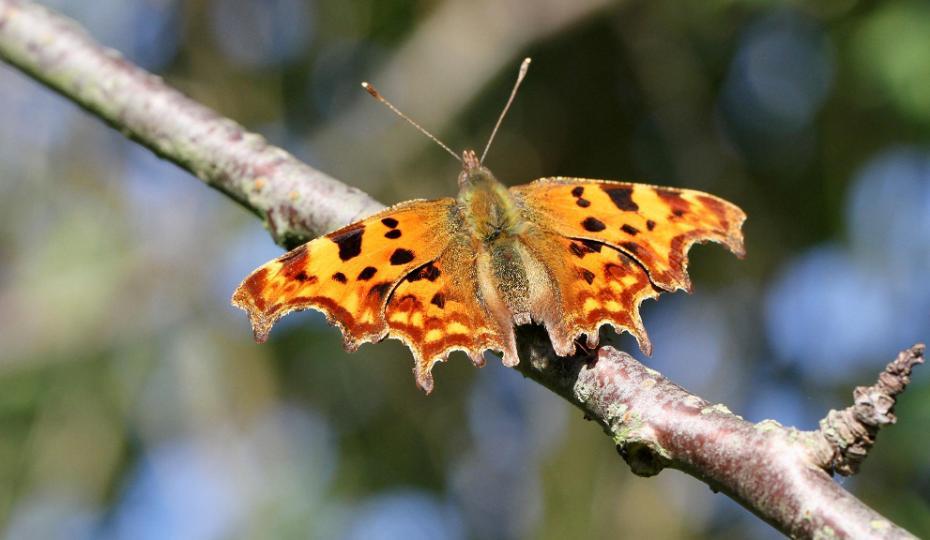Biodiversity Strategy
Enhancing our Biodiversity is a key strategy for both the University and Durham City. Are you curious to find out more? Read a summary of our Strategy brochure and discover more about how we are intending on measuring, maintaining and enhancing biodiversity across our 251ha of land at Durham.
Biodiversity Targets and Successes
We have set a target to achieve Biodiversity Net Gain by 2032 against a 2018 baseline. Calculating that baseline developed our understanding of our estate and enabled the setting of targets around species and habitats.
Our ambitious Biodiversity Strategy 2022-32 has already delivered results, including attracting breeding barn owls, trialling different approaches to wildflower meadow creation, re-introducing Black Poplar, the rarest tree in the UK, and achieving ‘Platinum’ accreditation from Hedgehog Friendly Campus.
We are delighted that our Biodiversity work is being recognised and proud of recent awards we have won, including the Green Gown Awards (GGA) for the Nature Positive category – both a Finalist in the UK and Ireland Awards and Highly commended for the International awards.
We were also pleased to become one of founding members of the Nature Positive Universities Alliance which was established at the UN Biodiversity Conference (CBP-COP15) in Montreal, Canada. Read more about the Nature Positive Universities Network and the opportunities it brings to collaborate with universities global on nature restoration and preservation.
In 2024, our work on Biodiversity was recognised at the County Durham Environment Awards. Three of our projects were shortlisted in different categories, two of which were successful – 2 of these were :
- Nature in Places and Spaces Award: 'Enhancing Biodiversity for All'
The Biodiversity and Grounds teams won for their efforts in making nature accessible in our managed woodland, Botanic Gardens and maintained footpaths;
- Environmental Community Action: our Mammal web citizen science programme for wildlife won the Environmental Community Action award.
Recent Progress on our Biodiversity Strategy
Following the development of our biodiversity baseline looking at land categories and identifying species, University departments, including Estates and Facilities Directorate and the Department of Biosciences, have worked jointly to develop our Biodiversity Strategy 2022-32 and action plan, with over 300 identified actions.
The University has a series of environmental sustainability goals and performance indicators around our biodiversity goals, including:
- Net gain of biodiverse habitats.
- Enhancement of biodiversity through habitat creation schemes.
- Engagement with biodiversity conservation.
- To maintain or enhance the Estate’s current species richness.
- To maintain or enhance population levels of priority species.
In the last year, we have recruited a dedicated Biodiversity Manager and worked hard to embed our Biodiversity Strategy’s delivery and continued to engage our staff, student and wider community.
Practical Actions
As an organisation, we have long undertaken much work to maintain and extend existing ecosystems and the biodiversity of both plants and animals, especially those under threat.
Recently we have:
- identified all International Union for Conservation (IUCN) red-listed species, locally important and vulnerable species on site and have individual action plans for them all on maintaining or increasing priority species’ populations.
- undertaken improvement works to our lake at Van Mildert College. This project has seen our Grounds & Gardens Team remove over-grown vegetation, to allow the reintroduction of lower growing marsh species, rare in this part of County Durham.
- created a Wildflower Meadow Trial at the Botanic Garden. Working with Durham Wildlife Trust, this has seen the lawn transformed into a meadow, with different approaches to re-wilding trialled side-by-side, to judge their effectiveness. The trials have also been expanded to include trials at a number of our college grounds.
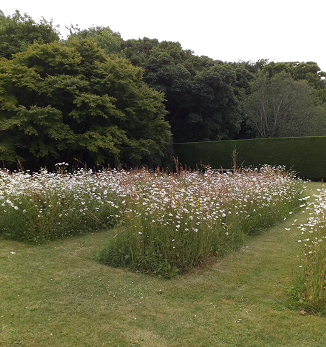
- Achieved Hedgehog Friendly Campus Platinum status as a result of work to implement improvements such as improved signage and regular litter picks.
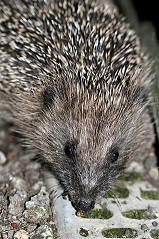
- Re-introduced Black Poplar (Populus nigra) the most endangered native tree in Britain. We nursed cuttings in our Botanic Garden, with planting out locations along the banks of the River Wear, and have kept some cuttings within the Botanic Garden so that they may be coppiced to harvest further cuttings for future conservation efforts.
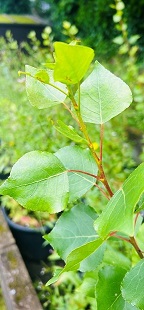
- turned land over to nature - converted 9 hectares of lawns to annually mown meadows, with substantial increases in plant richness, including creating new sites for Common Spotted, Bee, Marsh and Fragrant Orchids; planted approximately 400m of double row of native variety hedging.
- altered land management and attracted Buzzards to breed in Durham City for the first time in at least 200 years.
- Enriched 4.3 hectares for our Botanic Garden with yellow rattle seed.
- planted out thousands of self-grown native wildflower plants, including introducing two locally-extinct wetland species, Skullcap and Water-Horehound.
- developed a spin-out company to grow locally-provenanced plant species to enhance university biodiversity and to revegetate local quarries and woodlands, working with Durham County Council and the National Landscape Partnership.
- integrated Nature Positive approaches into our core operations, for example our Botanic Garden took part in No Mow May, and our Grounds & Gardens Team have left fallen deadwood in situ to create habitats.
- completed a full Biodiversity Net Gain account of 1000 land parcels across our Estate, feeding into future estate and conservation planning,
- produced draft strategies for altered land management for net gain across 6 hectares.
- created 3 new ponds between 2024/25 which cover 430m2 which is now habitat for a range of amphibians and invertebrates;
- taken 2.23ha of grassland out of sports management at the Graham Sports Centre; 0.69ha were oversewn with a species rich grassland mix to enhance species richness;
- replaced 34 bird boxes in and around Great High Wood; the boxes have had an 80% occupancy rate of species such as blue and great tits;
- placed 6 hedgehog boxes in the grounds of Grey College and a further box in the Botanic Garden;
- erected 10 nesting boxes as well as ‘dead wood logs’ to provide nesting opportunities for the nationally-rare Willow Tit;
- repaired 3 nest boxes and erected a further 2 nest boxes for Barn Owl around the estate; 2 boxes were used as important roosting sites for young birds while one pair nested in one of the repaired boxes;
- erected 8 durable ‘Forti Crete’ bat boxes around the Botanical gardens and Great Highwood; a bat walk was also undertaken, revealing that 5 species of bats occupy the woodland at Great Highwood.
We are working to eradicate invasive non-native and alien species and disease and ensuring alien invasive species impact reduction, included in our Biodiversity Strategy, Environmental Sustainability Vision, Policy and Strategy, our Sustainability Ambition Statement Pathways to Net Zero), launched in 2023, by undertaking regular balsam bashing; red elder removal; rhododendron, Japanese knotweed and giant hogweed removal; replacement of alien species in planting. We are also monitoring alien species, including diseases such as ash dieback.
This work continues to deliver results – this year we have recorded 18 species of butterfly on the estate as well as the first Green Woodpecker on the university estate for over 15 years (2025).
Planning
Sustainability is a University transversal strategy and threaded through all that we do. We now include biodiversity within our own planning and development on the University’s Estate. Our Energy and Sustainability team and Biodiversity Delivery Group, including our Biodiversity Manager, work with the Estates and Facilities Directorate Projects and Infrastructure Team to ensure we include local biodiversity into any planning and development process.
We have created our biodiversity habitat heat mapping and hotspot mapping for our Durham University Biodiversity Action Plan (DUBAP) to give an overview and aid in planning. We have recently re-evaluated the Biodiversity value of every unit on our 251-hectare estate to compare to our baseline and to map losses and gains so as to plan future development and conservation strategically.
The University’s Senior Sustainability Manager sits on groups at which future estate planning are considered and contributes information on which sites have low biodiversity value (e.g. brownfield) and which have high value and are less suited to development. The University’s Estates and Facilities directorate has also recently developed a whole Building Lifecycle approach to ensure that issues, including environmental sustainability and biodiversity, are considered at every stage of construction and renovation from concept to disposal – this includes both the sites selected as well as the processes involved and any remediation works arising.
By insisting that all new construction projects on our Estate achieve a BREEAM Excellent rating, as well as that all significant refurbishments achieve BREEAM Very Good, the University ensures that Land Use and Ecology are prioritised throughout. We also ensure that any developments we make on our Estate uplift Biodiversity to ensure Biodiversity Net Gain as well as aiming for BNG across the whole estate by 2032. Our work with the local authority and other partners on the Local Nature Recovery Strategy and our contributions to Durham County Council’s Biodiversity Supplementary Planning Document mean that we are aware and take into account wider local biodiversity.
One example can be seen in our recently refurbished college residence, James Barber House where we used British native wildflower meadow seed mix for clay which will produce a naturally beautiful wildflower species and seven meadow grasses and our Mathematical Sciences and Computer Science development where we laid a dual purpose mix and wild bird wildflower seed which also included a good mixture of half a dozen grass species, providing annual flowers in the first year and perennials thereafter.
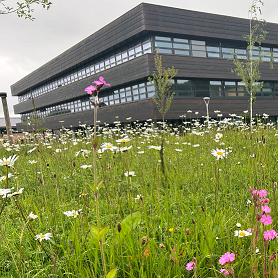
We are ensuring that any developments we make on our Estate uplift Biodiversity to ensure Biodiversity Net Gain.
Partnerships
We are working in several partnerships with local and regional organisations including Durham Wildlife Trust, the Wear Rivers Trust, RSPB, Natural England and the Woodland Trust. We also participate in national and international networks to share good practice on our Nature and Biodiversity activities for the benefit of Durham and the wider world.
Durham also works in collaboration for shared land ecosystems with our direct neighbours, including Durham County Council, Dean and Chapter, East Durham College Houghall Campus, Durham School, Durham Cathedral, and local residents. This has been on a range of projects and initiatives including collaborating on eradication of invasive species; creation of the Durham City Green Corridor; swift calling and habitat creation.
Durham University is part of a region-wide £3m project to deliver three North East England green corridors, primarily funded by the Arts and Humanities Research Council’s Place Programme. It seeks to nurture environmental and cultural stewardship and shared understandings of how communities use and enjoy green spaces and heritage along the river valley. The Durham route will stretch northwards from the city centre, along the River Wear connecting over 1,000 hectares of green and blue space.
Professor Steve Willis within our Department of Biodiversity works directly with research and industrial partners to support Biodiversity. Examples of his activities which maintain and extend existing ecosystems of both plants and animals include, collaborations on site with Nissan, Huskvana and Northumbria Water as well as work with Tarmac Plc, to grow native plants for habitat rehabilitation. Professor Willis also leads work with Durham Wildlife Trust on their Great North Fen and Discover Brightwater projects and is a trustee of the British Trust of Ornithology, ensuring that the organisation makes best use of their data to promote biodiversity at all levels.
Our work in partnership with Tarmac Quarries Ltd has involved the restoration of nationally-rare magnesian limestone grassland habitat at Quarrington Quarry.
Working directly with industry partners, the university propagated and grew thousands of rockrose plants – these maintain, restore and extend native ecosystems under threat. These plants are the larval food for the nationally-declining northern brown argus butterfly. The plugs were planted at the quarry by Durham University students as part of the restoration of the quarry and efforts to save the butterfly from local extinction in the area.
In partnership with the Bat Conservation Trust, Durham University erected 8 bat boxes and facilitated the National Bat Conference; at the latter, a bat walk was arranged with guided visits welcoming staff and students as well as conference attendees.
Public Access
At the University, we have long sought to share our natural assets with our wider communities and the public. We provide and maintain free and permanent public access to much of our extensive grounds, including open and green spaces and areas of high biodiversity value. As well as keeping access to our nature open, we actively maintain access to footbaths, woodlands and countryside.
Durham University has been shortlisted as a finalist this year for the UK and Ireland Green Gown Award in the ‘Benefitting Society’ category in recognition of the work we undertake to support diverse groups to access and engage with – see more at Green Gown Awards 2025 - Durham University
Community Outreach
We also deliver community outreach and events on sustainable use and management of land, on biodiversity and priority conservation species, on conservation and restoration of land, as well as supporting land and aquatic ecosystems through education.
Our baseline audit and Biodiversity Strategy development has highlighted the species richness of our estate, with 983 different plants, birds, mammals and insects identified. We have shared key findings on the iNaturalist platform and delivered talks to key stakeholders and schools across County Durham.
This year our Biodiversity Manager has delivered 4 Biodiversity themed guided walks around ancient woodland at Great Highwood. These are free and have been attended by a mix of students, staff, tourists and members of the local community and include information on both species present as well as sustainable use of land and forest management.
We make available self-guided walking and biodiversity routes for staff and students such as Walking routes Oct 2024 - Durham University on social media and Want to explore your new campus? sharepoint pages.
We continue to take part in outreach with local school and communities, as well as with our own staff and students. Outreach highlights include free hedgehog outreach sessions in local primary schools, purpose-built biodiversity games consoles at Science Festival, and leading staff/student biodiversity walks.
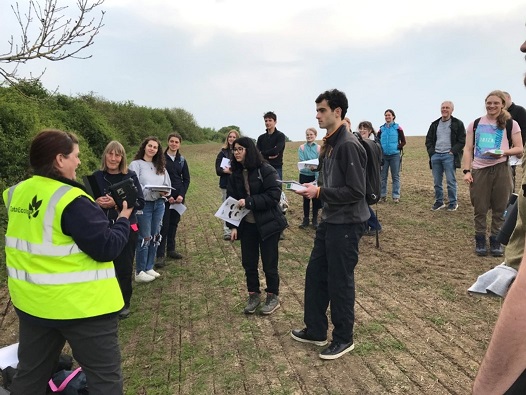
In May we hosted a group of year 12 Biology students from Queen Elizabeth Sixth Form College, Darlington. Students joined us to learn about woodland and conservation management and explored the vital work we do to protect and enhance our natural habitats through our Biodiversity Strategy and Action Plan.
As well as working directly with local and regional partners, we also supply advice and education on a range of issues including on life on land and life below water. This includes, for example support to Durham Cathedral and to East Durham College Houghall Campus which specialises in agriculture, animal care, horticulture, arboriculture, and other land-based studies. We continue to offer guidance on reducing residual run-off into local watercourses, developing mixed woodland creation schemes, priority habitat reintroduction and biodiversity connectivity through strategically-located wildlife corridors.
Education
As well as taking practical action, biodiversity study is incorporated into our taught modules, for example including how ecosystem services affect economics, the colonial legacy of many alien invasive species and the cultural importance of medicinal plants. It is also creating and supporting opportunities for biodiversity research from students and professors alike. Details of some of these courses can be seen at ESR - Durham University.
Additional modules include L1 Organisms and Environment; L2 Ecology module; L3 Conservation Biology module and L3 Field course modules: including modules on Tropical, Subtropical, Temperate and Marine ecosystems. Further details can be found in the Programme and Module Handbook: Undergraduate Programme and Module Handbook 2024-2025 - programmes for Biosciences
In addition, self-guided opportunities are also available and promote to our university community such as Mammal web: Learn about Animals (mammalweb.org) and we deliver School Science Events, such as Celebrate Science event (Activities for 2024 - Durham University).
As stated above under partnerships, Durham University students have been directly involved in the restoration of Quarrington Quarry. This partnership has facilitated excellent educational opportunities for students such as:
- hands-on involvement in the ecology and nature conservation of nationally-rare habitats and species;
- real-time involvement and awareness of the issues facing the aggregates industry and how nature conservation forms an integral part of the restoration process;
- requirements for health and safety in an industrial setting;
- horticultural techniques for the propagation of wildflowers for nature conservation projects.
Research
Many colleagues are undertaking research involving local and national communities on sustainable management of land.
Colleagues within our Department of Biosciences, are working with small holder farmers in Zimbabwe to try and address issues of soil degradation that is impacting on crop yields.
Drought persistently confronts smallholder farmers and singly impoverishes millions of people in southern Africa. Severe soil degradation makes plants more vulnerable to water deficits, exposing crops to drought stress even when there is low rainfall. While the cause for this phenomenon had been attributed entirely to low water-holding capacity of degraded soils, breakthrough research by the Durham Centre for Crop Improvement Technologies (Chivasa Group) has shown that the soil microbiome plays a decisive role - they blocked drought stress damage in cowpea plants grown in a degraded Zimbabwean soil by replenishing it with a thriving microbiome. Soil fertility analysis of samples from degraded farms in Zimbabwe revealed critical deficiency of soil organic carbon, which is the key fuel required for growth of soil microbes.
We have been funded by Innovate UK, STFC, the Royal Society and private philanthropists to exploit this research by developing strategies to drought-proof smallholder farming. We are screening crop varieties for their responsiveness to the soil microbiome and exploring low-cost measures to boost soil biodiversity in agriculture.
Further details are available Working with Zimbabwean farmers to rebuild soils - Durham University and Developing a microbial soil-treatment technology for crop protection against drought - Innovate UK Business Connect.
Detailed Progress Updates
For detailed information on some of this education, outreach and collaboration, see examples below:
Our leading Professor for Biodiversity from our Biosciences Department, gave a talk to the Derwent Valley Environment Conference (Join the First Derwent Valley Environment Conference in Consett - Consett Magazine - Positive Local News for Consett, County Durham) and has given similar talks to industry.
We work collaboratively with Durham County Council, most recently on the Local nature recovery strategy (Local Nature Recovery Strategy - Durham County Council).
Our Assistant Professor, Rebecca Senior, along with their PhD student did a podcast interview about rewilding and its potential to buffer species from climate change.
Our newly appointed Biodiversity Manager has led guided walks through our mature woodlands promoting our conservation across our Estate.
We have also worked in partnership to run a Bioblitz event with the North East Fungus Study Group.
We continue to arrange and hold events, such as the Fungal Foray – a nature walk and fungal discovery held on UK Fungus Day in October to explore local woodlands and learn about wild fungi.
Starting in spring 2025, we have hosted a series of weekly nature walks so staff, students and members of the local community can get to know our campus and help us identify plant, animal and insect species to inform our data. Walks take place in our ancient woodland, Palace Green, near Durham Cathedral, and along the banks of the Wear river. As well as taking time to familiarise themselves with our campus, attendees are encouraged to download the iNaturalist app and log species which will feed into our data.
In addition to our weekly walks, we have hosted forest bathing sessions with Ros Beaumont, Institute of Advanced Studies, Durham University. Sessions take place in our ancient woodland and on the banks of the Wear river. The sessions aim to introduce attendees to our varied greenspaces as well as promoting our biodiversity work.
In spring 2025, we took part in the global citizen science project, City Nature Challenge, and ran a series of events to encourage staff, students and members of the local community to log plant, animal and insect species and to promote our work in preserving biodiversity across our estate. As well as this, we worked with partners across the northeast to host a series of bioblitzes across the weekend. In spring 2026, we plan to build on our success by introducing the project to more potential partners in the region. Continuing this success, we participated for the first time in the City Campus Challenge in September 2025.


/prod01/prodbucket01/media/durham-university-business-school/study/dba/Home-Page-Banner-or-Footer.png)
